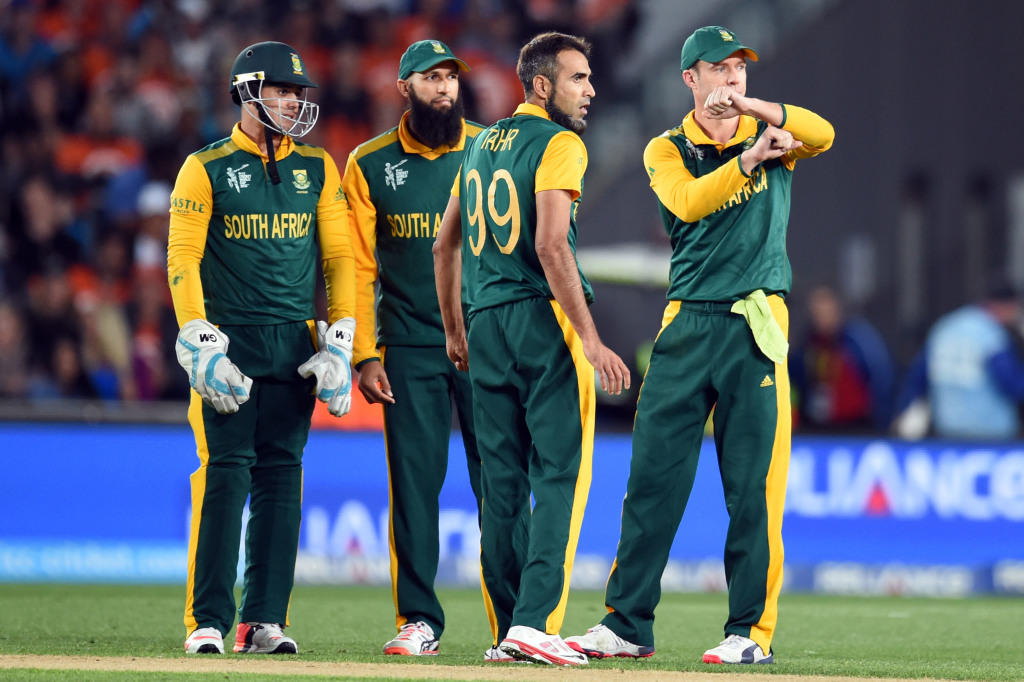I thought I was living in England and that the team being written about and spoken about was England.
The Proteas had lost a World Cup semi-final but they were heroes because of the manner in which they lost. All that had happened before remained irrelevant. Emotion favoured the Proteas. Emotion numbed the sporting pain of defeat and emotion conveniently clouded judgement.
South Africa, beaten with a ball to spare in the semi-final, had done cricket proud. They had proved wonderful ambassadors and they had shown the world how to lose with dignity and grace.
I thought these kinds of media and fan platitudes were the exclusive reserve of England, who have perfected the art of coming second and managed to turn the average into great, at least in terms of expectation, and the good into legendary, in terms of opinion, if not supported by performance, statistic or fact.
Proteas captain AB de Villiers, the world’s best batsman in every format, and among the most talented to have ever played the game, was outstanding with the bat but his captaincy was not in the same class.
The two – his batting and captaincy – shouldn’t be confused, but in finding the romance in defeat, De Villiers’ leadership was lauded as if it was his batting.
The Proteas captain tugged at the heartstrings of South Africans in a video, where he thanked the public for the support and his teammates for their effort, and reminded the public that the players could have done no more and that each player had left everything he had in Auckland. De Villiers was talking about effort and emotion, but he never went near the actual cricket in his thank you message.
The cricket is a bit different because it speaks of a team that was never good enough, by virtue of performance in the buildup to the World Cup, to win it. The cricket speaks of a team that won 11 out of their last 24 matches against teams ranked in the top five before the World Cup and one in three at the event. The Proteas had a losing record against everyone except New Zealand and Pakistan, and even then they lost a home series to both for the first time. The side had beaten Australia in a triangular tournament in Zimbabwe but had lost 4-1 when touring Australia as part of the World Cup preparations.
The starting XI was never settled before the World Cup or even during the tournament. Injury seemed to guide selections more than any conviction about who was the best option at No 7. Was it a batting all-rounder who would attempt to replace the massive contribution Jacques Kallis had made over nearly two decades of international cricket, or a bowler who was capable of a lower-order cameo?
There is no replacement for Kallis and there may never be. He is a once-in-a-generation cricketer; perhaps even a once-in-a-lifetime one.
Kallis should have been at the World Cup. Every effort from within Cricket South Africa should have been made to manage his workload and to ensure he had one last opportunity to help South Africa win the World Cup.
Former Proteas opening batsman Herschelle Gibbs was the only consistently frank critic. And Gibbs didn’t need hindsight or a semi-final defeat to ask relevant questions.
Gibbs, writing a column for www.sacricketmag.com, questioned South Africas implosion in a big run chase against India. It looked all too familiar, he wrote.
The standard response in the comments section and on the social media Twitter forums was an attack on Gibbs. He was accused of being jealous, of being a has-been and of not wanting the Proteas to do well. He was reminded of his infamous catch-that-wasn’t against Australia in 1999 and he copped abuse.
Yet there wasn’t a challenge of the cricketing criticism. There couldn’t be because it was supported by the lack of performance.
The top six had failed to chase down big scores, the bowlers had failed to defend big totals against the best teams and there had been no answer in player identification or performance for the problematic No 7 position.
The players had failed to handle the pressure moments in the field on too many occasions and Gibbs identified players, among them JP Duminy, as ones who never performed against the best teams and in the most pressured environment, but created the illusion of doing so because of big performances against the weakest teams.
Gibbs wrote that Duminy has scored his ODI centuries against Zimbabwe and the Netherlands but invariably had buckled to pressure when asked to score a ‘backs to the wall’ century against better opposition. Again, Gibbs was condemned and accused of jealousy.
There was simply a refusal to actually look at the cricketing issues, so much so that Dale Steyn’s inability to defend 12 runs in the final over was not analysed.
Steyn conceded 76 runs in 8.5 overs. It was his worst ODI display in an event in which his performance never matched his reputation or his Test exploits.
Steyn wept in the aftermath of that final over. He was crushed. The man who hit the winning boundary, Grant Elliot, helped Steyn to his feet, and that’s the image that has won favour with so many.
Emotion has ruled over analysis of why the Proteas failed to win the World Cup. And when emotion is the only analysis, coming second is the only option. Ask England.
This column appears in the latest issue of Business Day/Sunday Times Sport Monthly.







